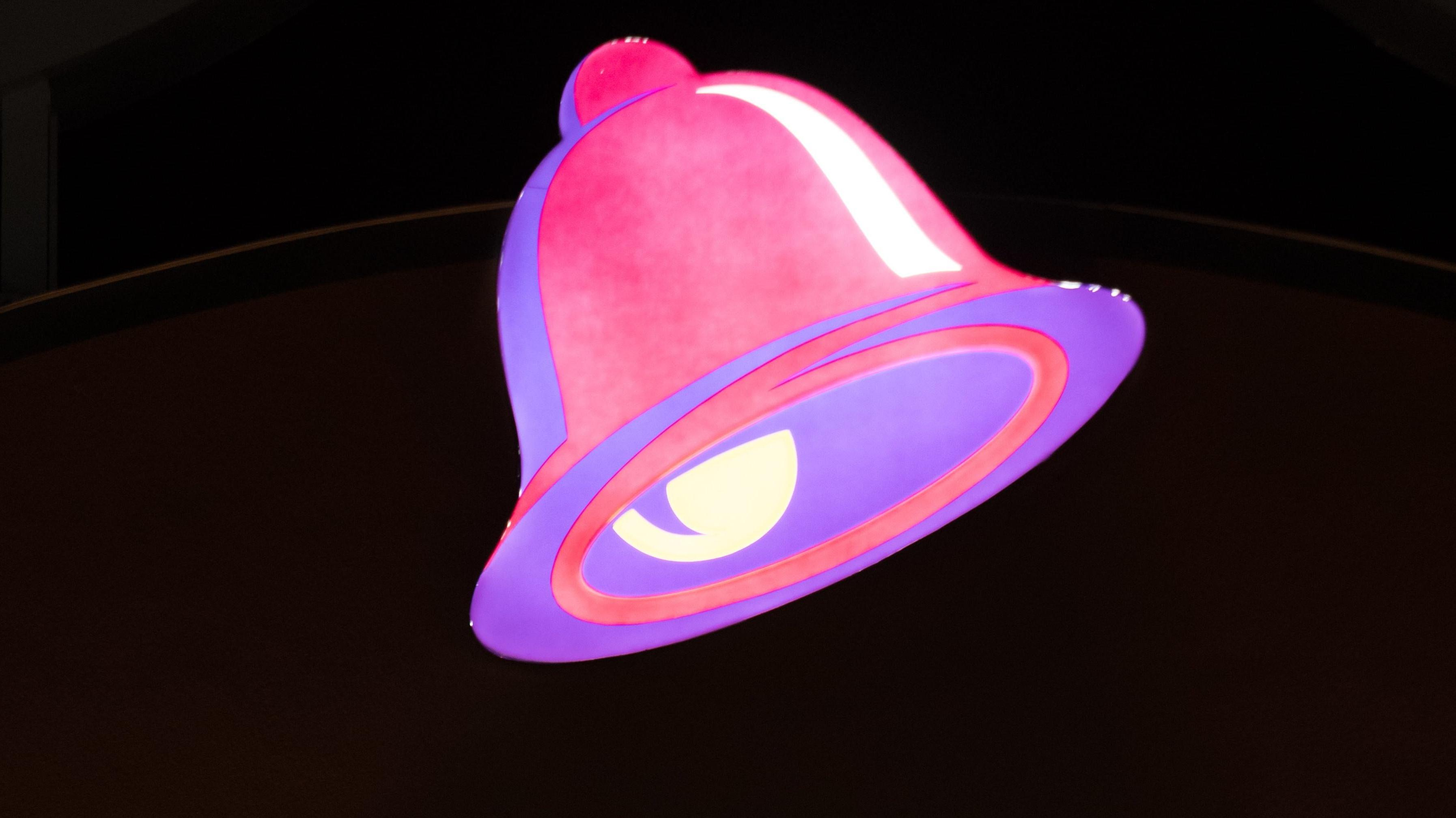Taco Bell Quarterly And The Rebellious Poetics Of Living Más
M.M. Carrigan and their editorial team implore you to consider the Crunchwrap Supreme.
The literary world is a gauntlet of prestige. Tumid journals determine the landscape, their enigmatic editors operating with even more enigmatic standards. It is nothing like a Taco Bell.
And yet, a line of cars outside slapdash Tex-Mex fast food chain acts as a gripping setting for writer Cathering Weiss' reflective poem on selfhood, procreation, and suplexes, "everyone at the KFC-Taco Bell drive-thru is on their way to the pro wrestling show," published in volume 5 of Taco Bell Quarterly. Weiss writes:
i turn to my husband whisper melodramaticallywe could have had a family too
and wonder what percent i am jokingwhat percent i want to order some small human a taco
This is the literary alchemy of Taco Bell Quarterly, a magazine founded to subvert the too-serious writing world and encourage its gatekeepers to think outside the bun.
Founded in 2019 by Baltimore-based writer M.M. Carrigan, Taco Bell Quarterly started as the idle thought of a lifelong Taco Bell devotee. Carrigan was ruminating on the fickle chaos of the literary world: It seemed cruel and arbitrary how journals like The Paris Review or Ploughshares could make or break a writer's career all on an editorial whim. Heartbreaking. It reminded them of Mexican Pizza and Fiesta Potatoes.
"The thing I really relate to is the way that [Taco Bell] will casually just rip stuff from our lives," Carrigan says. "They're cruel gods... And I kind of respect that. There's something about that that's very metaphorical to writing itself."
Carrigan did what all true writers do and took this rumination to Twitter. "I want to make a magazine of literary Taco Bell writing," they wrote. "No hipster crap. I want sincerity and love." The only requirement was a mention of T-Bell.
The response was modest, but affirming. Three hours later, Carrigan had a Weebly form set up, and Taco Bell Quarterly was accepting submissions.
Taco Bell Quarterly, the cure for the common lit mag
Though it may make for a strange muse for poems, essays, and autofiction, Taco Bell holds a transcendent place in modern pop culture. The appeal is uncanny. Most recognize it as poor-quality mega-corporate cafeteria food, but the brand's refusal to abide by traditional dining standards has made it somehow countercultural.
Then, there's the branding: indulgent, chaotic, maximalist. The irony is so deep that it turns in on itself, becoming an ouroboros of independent film festivals, candlelight vigils, and a musical about Dolly Parton. Whenever T-Bell inspires some new meme-become-flesh, the first instinct is to question whether or not it's a hoax. The second is blissful resignation. Qdoba simply could never.
"Taco Bell Quarterly is a response to the shattering of illusions of literary writing," Carrigan says. "There's only so many routes into the literary world. We want to encourage everyone to open another drive-thru lane."
The first issue of Taco Bell Quarterly, or TBQ as devotees have abbreviated it, released in August 2019. It features 159 pages of margin-to-margin art dedicated to living más—from poems titled "7-Layer Purgatory" to essays called "Fiery Doritos Locos Taco Supreme—Heavy on the Loco."
"This first issue was just a bunch of underground writers who saw the prompt and thought it was funny, and I published 100% of everything that came in," Carrigan says. "It's been growing from there, expanding the prompt, letting the writers invent the genre of Taco Bell literary writing, whatever that is."
TBQ just wrapped submissions for issue 6, which will be out this winter. Carrigan said they received over 2,000 submissions and were only able to accept 25, giving them an acceptance rate ironically on par with The New Yorker and The Paris Review. The magazine is openly antagonistic toward the publications that are now its peers, constantly threatening on Twitter to overtake them.
Naturally, Taco Bell's marketing department has taken notice ("A literary magazine trying to take over The Paris Review accidentally fits right into their unhinged brand, I guess," Carrigan says). Carrigan had a Zoom call with a couple of "millennials who work on the advertising team," but when TBQ's founder requested $1 million in return for collaboration, talks politely ended. They've been in contact a few times since, but every time Taco Bell reaches out, Carrigan requests an additional million to "dismantle the literary gates." The ask is now up to $7 million. The restaurant hasn't capitulated, but the company has at least agreed not to sue.
Without an endowment from "Daddy Taco," the magazine is raising money through reader donations (Carrigan is squatting on the Venmo handle @ParisReview). Carrigan is proud to say that they now offer an honorarium of $100 to their writers, something that they and their team of volunteer readers and editors weren't dreaming of when a tweet became a lit mag in 2019.
Carrigan's goals for the brand are modest, if not a little doomy. While 27,000 Twitter followers is a good start, it can't quite seed a literary uprising like they're hoping. Maybe enough people will get the joke that they can keep it going for three more years. Maybe they'll raise enough money to launch a print version.
Maybe, if nothing else, TBQ will inspire someone else to turn their half-baked, meme-sick idea into an opportunity for writers to be heard.
"Literary magazines are born to die, and I worry about what the future looks like for creative writers when all these things are so strangled," Carrigan says. "There's nothing really glamorous about running a literary magazine, other than the excitement of publishing writers who are thrilled with it."
